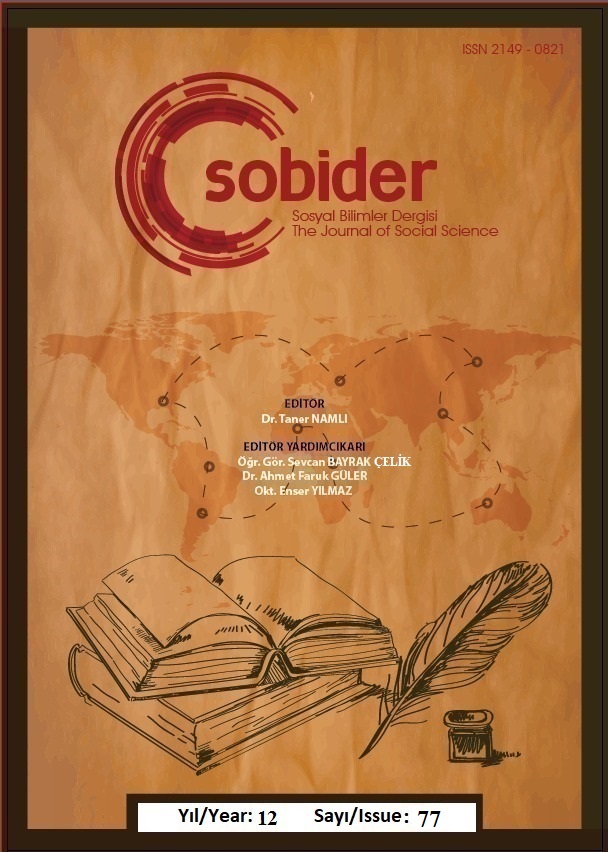ULUSAL KİMLİĞİN İNŞASINDA MÜZİK: TÜRKİYE CUMHURİYETİ ÖRNEĞİNDE ANALİTİK VE KARŞILAŞTIRMALI BİR YAKLAŞIM
Author :
Abstract
Bu çalışma, Türkiye Cumhuriyeti’nin kuruluşundan günümüze kadar uzanan süreçte, müziğin ulusal kimliğin inşasındaki rolünü tarihsel ve kuramsal bir çerçevede incelemektedir. Müzik, yalnızca estetik bir ifade biçimi olarak değil, aynı zamanda ideolojik ve pedagojik bir araç olarak, modernleşme ve uluslaşma süreçlerinde stratejik bir rol üstlenmiştir. Cumhuriyet’in ilk yıllarında gerçekleştirilen müzik politikaları, halk müziği derlemeleri, Batı müziğiyle sentez girişimleri ve kurumsal yapılanmalar, yeni bir ulusal müzik dili inşa etme hedefi doğrultusunda değerlendirilmiştir. Çalışmada, “Türk Beşleri”, “Yurttan Sesler” gibi örnekler üzerinden estetik üretim ile ideolojik içerik arasındaki ilişki analiz edilmiştir. Ayrıca, küreselleşme ve dijitalleşme çağında müziğin ulusal kimlik anlatısındaki dönüşümü ele alınmış; Türkiye’nin bu süreçteki özgünlüğü ve diğer ulusal örneklerle benzerlikleri karşılaştırmalı olarak tartışılmıştır. Sonuç olarak, müziğin ulusal kimliğin inşasında hem tarihsel hem de güncel bağlamda merkezi bir rol oynadığı ortaya konulmuştur.
Keywords
Abstract
This study examines the role of music in the construction of national identity in Turkey from the establishment of the Republic to the present day, within a historical and theoretical framework. Music has functioned not only as an aesthetic form of expression but also as an ideological and pedagogical tool in the modernization and nation-building processes. Early Republican music policies, folk music compilations, attempts to synthesize with Western music, and the creation of institutional structures are evaluated as part of the efforts to construct a new national musical language. Through examples such as the "Turkish Five" and "Yurttan Sesler," the study analyzes the intersection between aesthetic production and ideological content. Moreover, it explores the transformation of national music narratives in the context of globalization and digitalization, comparing Turkey's experience with other national cases. Ultimately, the study reveals that music has played a central role in the formation of national identity, both historically and in contemporary contexts.





